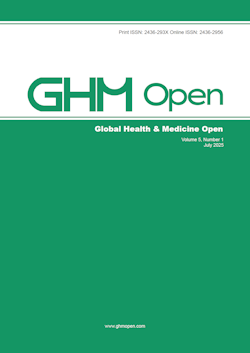The impact of a health education program on cervical cancer screening uptake: A survey among primary school teachers in Phnom Penh, Cambodia
Kanda M, Kim L, Haruyama R, Sann C, Fujita N, Chhit M, Hang S, Krouch R, Kobayashi J, Shibuya F, Asakura T, Osuga Y, Koum K, Takeuchi R
This study aimed to evaluate the impact of a health education intervention on women's cervical cancer screening uptake. It was conducted using data from the collaborative project by the Cambodian Society of Gynecology and Obstetrics and the Japan Society of Obstetrics and Gynecology to improve cervical cancer services in Cambodia. A prospective observational study was conducted from August 2022 to May 2023, involving 1,538 female teachers from 80 public primary schools in Phnom Penh, Cambodia. A total of 815 participants (intervention group [n = 355] and control group [n = 460]) were eligible for analysis. The intervention group received a tailored health education program and an invitation to register for free cervical cancer screening, while the control group only received the invitation to screening. The intervention group demonstrated a significantly higher screening registration (32.1% vs. 18.8%, p < 0.001) and uptake (24.1% vs. 12.7%, p < 0.001) than the control group. When comparing changes in knowledge and attitude between baseline and endline assessments, the intervention group showed a notable improvement in knowledge regarding the causes, symptoms, prevention, and benefits of early detection of cervical cancer. For instance, the proportion of women who recognized human papillomavirus as the cause of cervical cancer significantly increased in the intervention group (baseline: 23.7%, endline: 57.5%, p < 0.001), while no significant change was observed in the control group (baseline: 24.4%, endline: 29.1%, p = 0.101). In conclusion, the health education program effectively increased cervical cancer screening uptake, knowledge and attitude on cervical cancer. Further improvements in screening uptake may require educational interventions that influence individual health behaviors and systematic encouragement for screening participation.







